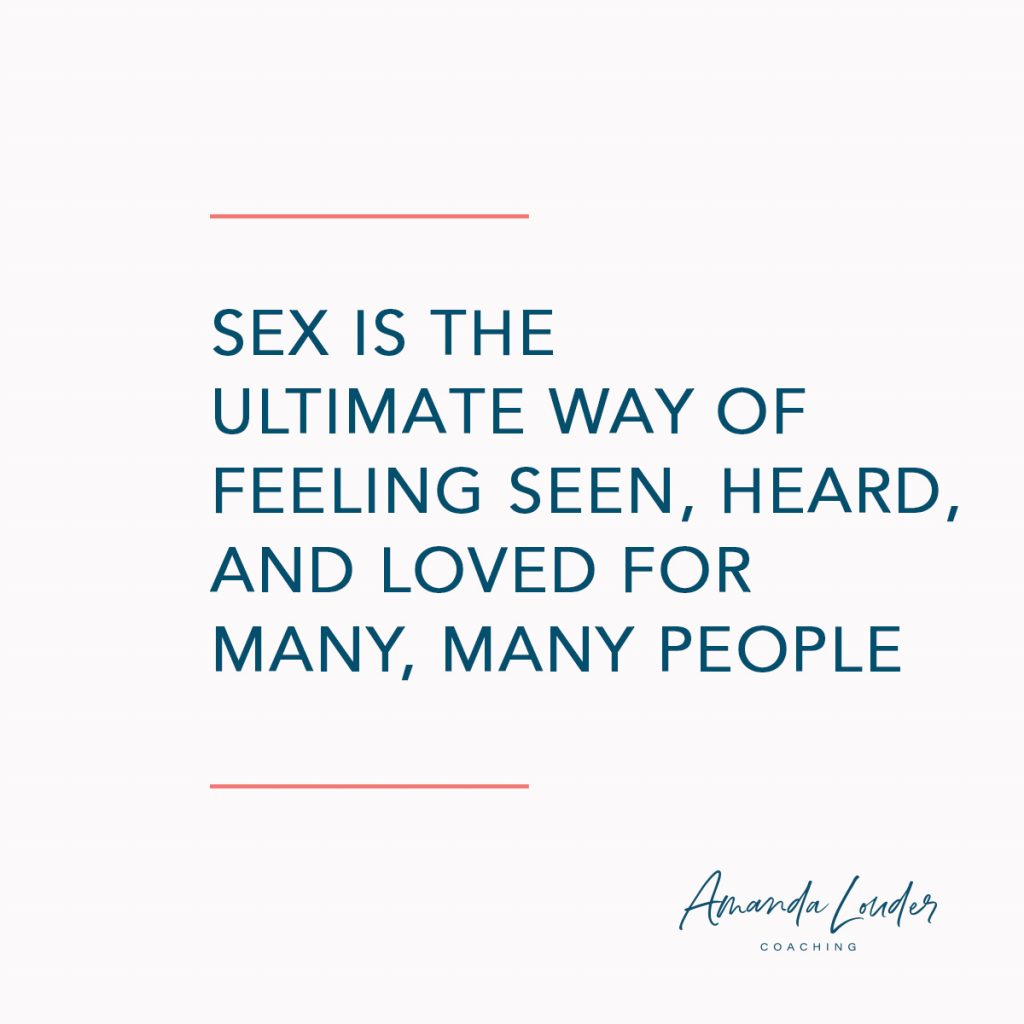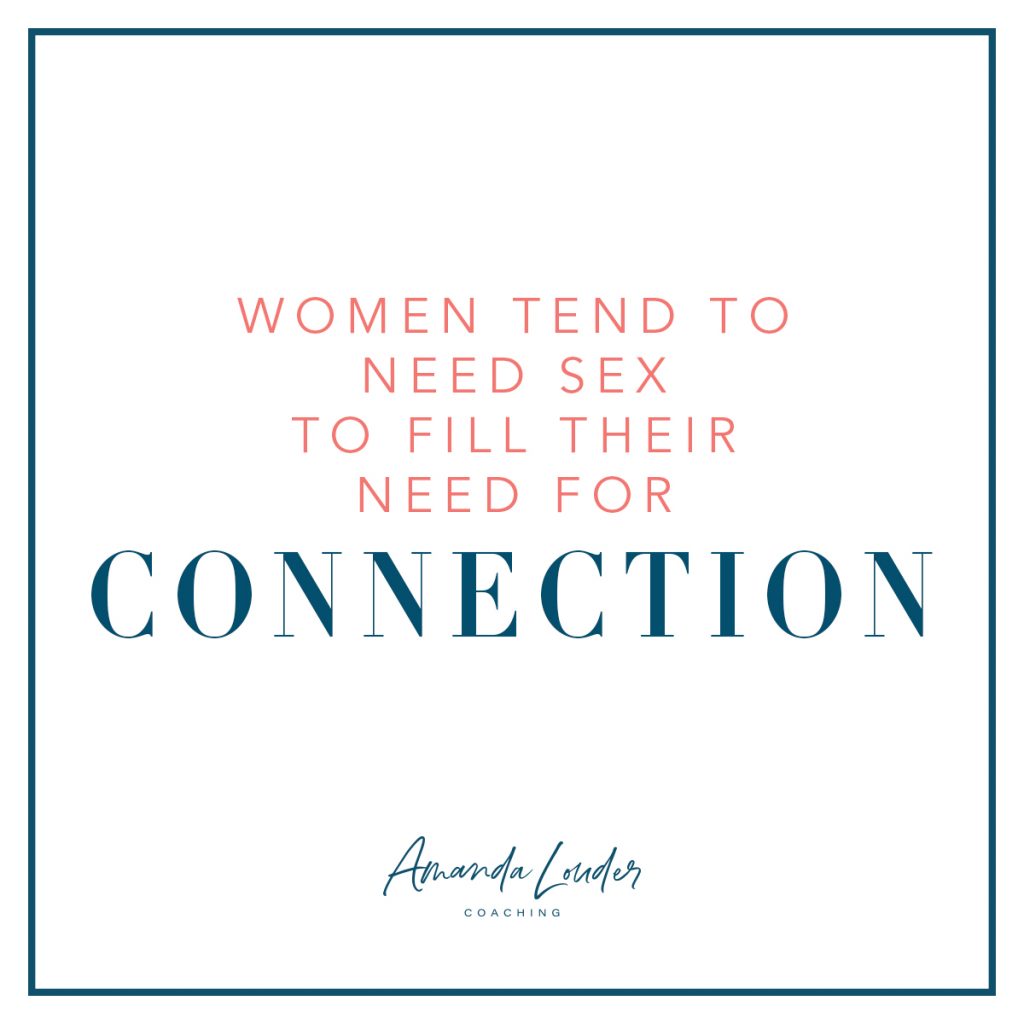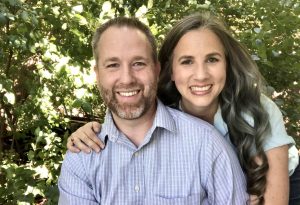
Is sex a need? The answer is no…kind of. There are differing viewpoints on how important sex is to each of us, but what we really need to look at is how important it is to us and how we can share that with our partners. Men and women, higher and lower desire partners need to meet their own needs as much as possible. Then your partner is just there for you to love. It makes for a great marriage and a great relationship.




Show Notes:
Follow Amanda on Facebook and Instagram.
Join Amanda’s Private Facebook Group.
References for this episode:
Why Maslow’s Hierarchy of Needs Is Wrong
Show Summary:
Is sex a need? I’d bet most higher-desire partners feel like it is! Often when we are not sexually satisfied, it becomes very distracting and seems to be the only thing we can focus on. Our brain creates an urgency that seems very, very important and pressing. But do we actually need sex for survival? Well, no…kind of.
The way that our brain was designed to work is that we are rewarded for life preserving activities. And while sex isn’t needed to preserve our life, it is needed for the survival of the species. So the brain rewards you heavily with feel good neurotransmitters when you have sex. This creates cues around sexual neural pathways that remind us how important it is to seek it again…and again. It is hard-wired into our DNA. But that doesn’t constitute a biological need. Despite how it may feel sometimes, we will not die without sex. But, according to Maslow’s Hierarchy of needs, it is a basic physiological need for us as humans. It’s not on the same level of air, water, and food, but without it, for many people, it does make it harder to move up the hierarchy. Let me explain a little bit more.
Maslow’s hierarchy of needs is used to study how humans intrinsically partake in behavioral motivation. Maslow used the terms “physiological,” “safety,” “belonging and love,” or “social needs,” “esteem,” and “self-actualization” to describe the pattern through which human motivations generally move. This means that in order for motivation to occur at the next level, each level must be satisfied within the individual themselves.
This hierarchy of needs is in the shape of a pyramid, with our most basic physiological needs at the bottom; air, food, water, sleep, homeostasis, excretion, and sex. According to Maslow, the needs on the higher levels (safety, love/belonging, esteem, and self-actualization) are much more difficult to fulfill if the needs on the lower levels aren’t being met. But one thing we have to keep in mind is this is not saying that everyone wants or needs to have sex. It is saying that “in order for motivation to occur at the next level, each level must be satisfied within the individual themselves.” For some, that may mean no sex at all. How do we know this? Because there is no evidence that celibacy or asexuality is actually physically or psychologically unhealthy.
So obviously, “needing” sex isn’t the same as needing air and water to survive. But who really wants to have only their basic physiological needs met? “Men are that they might have joy,” (2 Nephi 2:25) right? We want not only to survive, but thrive in this life. Do we want a marriage, an eternal relationship, where only our basic needs are being met? The bare minimum to keep us alive? I don’t think so! I think most of us want our “wants” met just as much as our “needs.”
UCLA professor and social neuroscience researcher Matthew Lieberman argues that Maslow actually got it wrong. He said that food, shelter, and warmth are not the foundation of our human needs. In his book Social: Why Our Brains Are Wired to Connect, Lieberman shows how the latest science is revealing that, above all else, our social bonds are the most essential need we have for survival. Yes, we need food, shelter, and warmth to survive, but none of us could have that without first belonging to someone who can ensure that we receive these fundamentals.
In her book, The Village Effect: Why Face-to-face Contact Matters, Susan Pinker writes “The idea was that giving your baby too much attention and love would make them weak and dependent. But now science is showing why warm, trusting, and loving relationships are crucial to a child’s survival, development, and well-being. And we’re never too old to need these same relationships––you don’t grow out of a need and want to be with people, to be seen, heard, and loved.”
And sex is the ultimate way of feeling seen, heard, and loved for many, many people. When we have that security and our needs are being met, we “feel more equipped and willing to pursue our individual passions and goals”. We move up the hierarchy. But if we don’t have those secure attachments in our relationships, we “never get past the pain of rejection, just like we never get past the pain of hunger.” (Lieberman)
Amy Banks, in the book Wire to Connect says “Isolation is a stressful state for both your body and brain, especially when you sense that you’re being rejected or judged; your body reads it as a dangerous situation…At these times, your body doesn’t have the interest in or energy for building new synaptic connections for learning. It’s simply busy saving itself.”
So when you feel like your sexual needs aren’t being met, and if you are feeling judged or rejected for this need, your brain interprets it as dangerous and you go into survival mode. You take what little scraps you can have so that you can just get by. But that doesn’t help you move up the hierarchy. It keeps you stuck just trying to survive.
So yes, sex is a physiological need for some people. They need it to survive. But we also need it to thrive. To thrive in this life we need security, self-esteem, autonomy, and connection. To be happy, stable people, we need our most basic physiological needs but also our psychological needs met. If they are not, our minds will actually begin to rationalize ways to get them met, even at the expense of our physical or mental health.
This rationalization doesn’t negate our agency. We always have the agency to choose. But it makes sense that our brain will do whatever it can to stay out of survival mode, to stay away from rejection and judgement. Because at the core, it’s job is to keep us safe and alive and it definitely sees those things as a threat to our survival.
Mark Manson, a New York Times Best Selling Author says “sex is a strategy we use to meet our psychological needs and not a need itself.” He goes on to say that “the mismatched understanding between men and women and sex comes from the fact that men and women usually use sex to satisfy different needs.” Women tend to need sex to fill their need for connection. Men tend to seek sex to fulfill their need for self-esteem. That is often how they find their validation. And because men and women want it for different reasons, they often “fail to understand each other and criticize each other for not meeting the need they want met. Men think women are being clingy and manipulative, whereas women think men are being insecure and desperate.” Neither is particularly attractive to the other.
So where do we go from here? Men and women, higher and lower desire partners need to meet their own needs as much as possible. This is one of the core things I teach in my coaching program. Dropping expectations and meeting your own needs. Then your partner is just there for you to love. It makes for a great marriage and a great relationship.
But, I think one of the misconceptions we have, especially in Christian, monogamous relationships is we think that our partner has to be the one to meet our sexual needs because it is against our beliefs to go outside of the marriage. But that puts a lot of undue pressure on the marriage and the spouse. But what if that wasn’t the case? What if it was our job to meet our own sexual needs? But, we CHOOSE to share that sexuality with the person we are married to. It’s a choice and that change in perspective is huge. It’s always a choice. So you get to choose if you’re going to meet that need for yourself or if you’re going to choose to share that with your spouse and your spouse has the same choice. But if they’re feeling obligated, like it’s their job, it’s not truly a choice and the desire for it decreases. So when we can open it up to choice, it can make a huge difference. And it’s not a biological need although it is definitely necessary for us to thrive in this life and in our marriages.
So, just think about that. Think about what you want in your marriage, what you want in your life. Are you wanting these biological needs to be very basically met or do you want to thrive and how can you best do that? And if you need some help with that, feel free to reach out to me in coaching so we can get you the help that you need so you can truly thrive in this area and all areas of your life.



